How to get your child to sleep: tips and tricks for a full night's rest
Tearing your hair out at a little one that won't sleep? We've got loads of tips on how to get your child to sleep better...
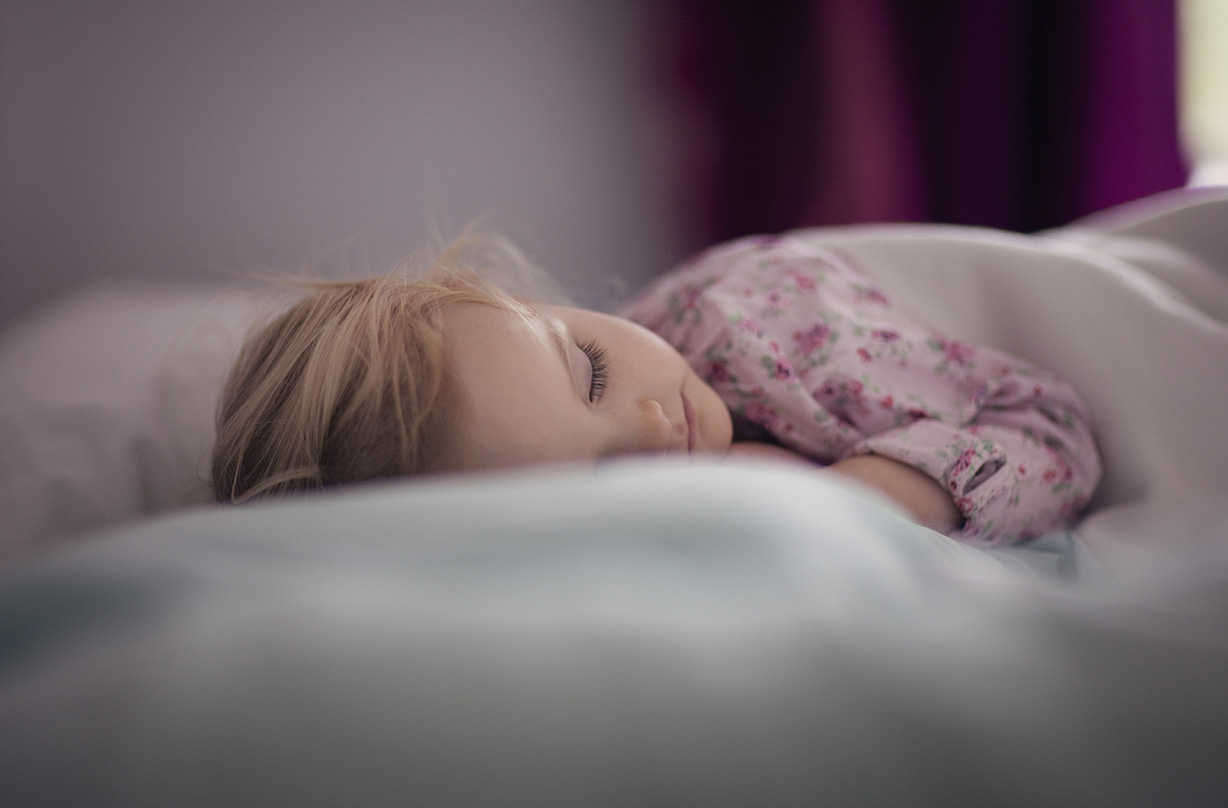

Getting your children into a healthy sleep routine isn't an easy task.
So a few tips on how to get your child to sleep never go amiss.
Kids will be kids and you've probably heard 'but mum, I'm not tired' or 'I want to sleep in your bed' a hundred times, but no more!
If you think getting a baby to sleep was difficult, with all the different ways to feed them, bathe them and keep them from waking up, wait until you try getting your toddler to wind down at night time!
It's a difficult job but don't worry, we're here to help. Once you've established how much sleep your child needs, you can use our guide for tips and tricks to getting them more (and better!) sleep. The more sleep they have, the more you will too, and that sounds pretty good to us! So here's everything you need to know about how to get your child to sleep better...
What can you do when your child won't sleep?
For parents, having a child that won't sleep can be equal parts concerning and difficult to handle as if they're not sleeping, you're unlikely to either. But as child sleep specialist, Lauren Peacock of Little Sleep Stars tells GoodtoKnow, bedtime resistance or sleep disturbance can be a manifestation of anxiety.
To help with this problem, Lauren suggests, "Creating time to discuss worries during the day and utilising tools such as worry-eaters, an age-appropriate comfort item or a nightlight with a red bulb can be effective."
GoodtoKnow Newsletter
Parenting advice, hot topics, best buys and family finance tips delivered straight to your inbox.
But she also says, "Bedtime resistance can also be about boundary-testing. Having a clear and consistent pre-bed routine can help. Offering simple choices through the day and in the run-up to bedtime can help to reduce battles. Ultimately, boundary-testing will continue for as long as there is a chance the boundary moves, so setting and maintaining clear, empathetic and age-appropriate limits is key."
So once you've figured out why they might not be sleeping and what to do about it, have a look at ways to help encourage your child get a peaceful night's sleep...
How to get your child to sleep better
Daytime activities
Keeping kids active is essential for their sleep patterns - if they don't get out and about enough in the day, when it comes to night time they just won't be tired enough, plus it's recommended that kids get at least 15 minutes exercise a day.
Tip: Get moving as a whole family! It's easy to find things to do with the kids, especially at the weekends. Try heading out for walks or play football in your local park - it's great bonding time and you'll all be getting your daily exercise, too.
How to calm everything down after dinner
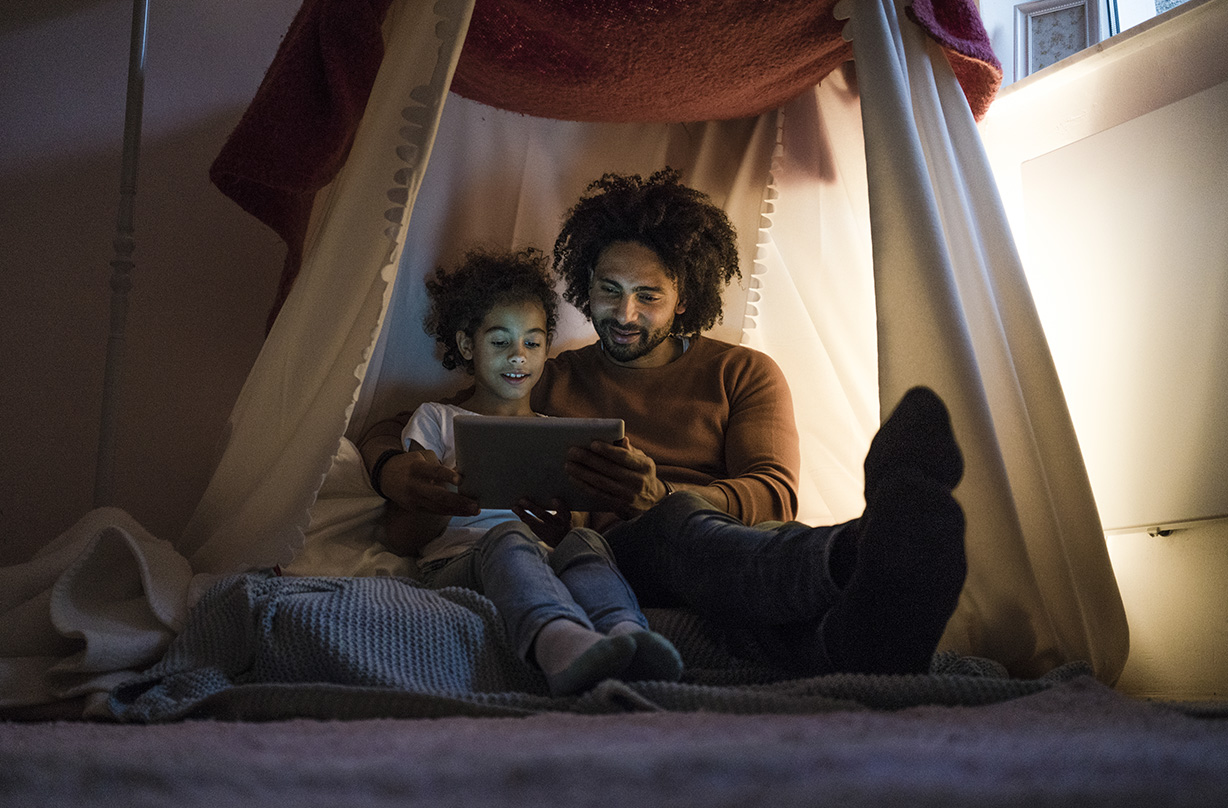
Most days are busy and exciting for toddlers and kids, so by the time they've had dinner they're likely to be low on energy. This is a great time to calm everything down, let the excitement of the day come to a lull and prepare them for bedtime.
You know your child best so if it's reading a book or watching half-an-hour of TV that chills them out, do whatever works for them. This will really help in the transition from day to night time and they'll start to understand that this time is a calm time before bed.
Try sleep-inducing snacks before bed
A warm glass of milk before bed is a great sleep-inducing drink, but did you know that bananas, turkey, peanuts and yogurt are also loaded with sleep-triggering tryptophan? Give your kids one of these snacks about 30 minutes before bed and it'll help them sleep right through the night.
Check out your child's bedroom
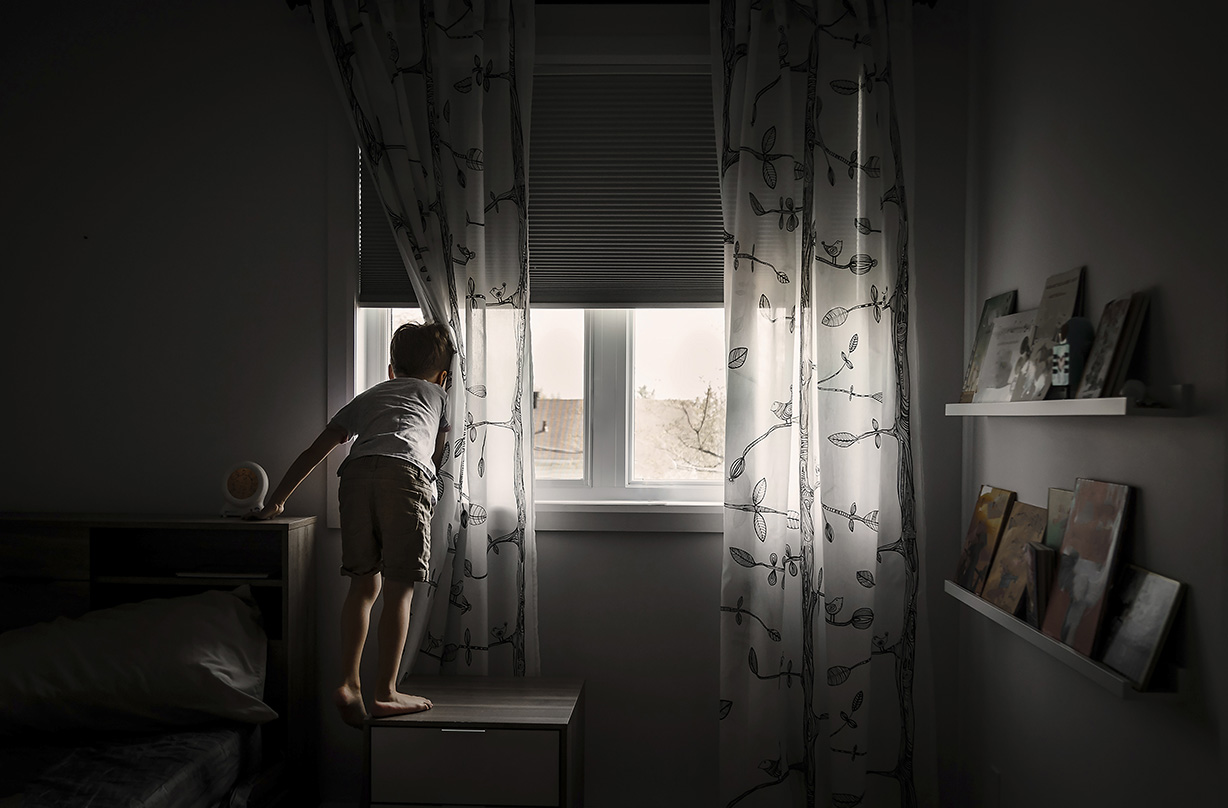
If they always complain about a noise or wake up at a certain time each night, go in their room and check it out. It could be the heating coming on, or a next door neighbour leaving for work, but it's worth checking out to see if there is anything that triggers them to wake up.
Creating a calm place that is perfect for your little one to sleep is key in making sure they sleep well. There's lots to think about when making sure that your child's room is a great sleeping environment, from temperature, to blinds and duvets.
First things first, make sure you invest in a blackout blind - you won't regret it. Throughout the winter months it might seem like the curtains are doing the job, but when summer comes and the days get longer a blackout blind will be perfect for creating a dark and sleepy place for your child.
Then, make sure the temperature is right in the room - like us, children generally sleep better if it's a bit cooler. The temperature of your child's room should be between 18°C and 21°C. However, if you're hot in the room the chances are your child will be too so leave the window slightly open, but locked. During the warmer months you can also use a fan to keep your child cool through the night, just make sure they aren't sleeping near to the draught.
And finally ensure they are sleeping with the right duvet - the last thing you want is them waking up as they're hot and irritable in the night. Unless their bedroom is really cold, it's best to have a lighter weight duvet (between 4.5 and 9 tog). A child's duvet will generally trap more air and be warmer, as they are smaller - so a heavier tog duvet (13.5) would probably be too warm. However, if they do get cold in the winter, make sure you swap to a heavier duvet or put a blanket on top of their usual one.
Try lavender in their bath
Lavender has been proven to help with sleep, so it's worth trying this natural approach when it comes to a child who has sleep troubles.
Each night when they have their bath add some lavender bubble bath and bathe them as normal letting them play with their bath toys. Lavender is said to lengthen sleep time, increase deep sleeps and help you feel refreshed - it's definitely worth a try!
Install a night light in their bedroom
This tried and tested sleep aid is not just a winner for babies, children can also seek comfort in small light in the corner of their room
Our sleep expert, Lauren Peacock says, "For anxious children, a comforter, sleep-spray or a night-light can sometimes help."
"If using a night-light, opt for a red bulb wherever possible as this colour is the most supportive of sleep. In extreme cases, where sleep-hygiene, timings and all behavioural aspects have been optimised but a child still cannot settle to sleep, it is worth discussing matters with your GP or paediatrician who may consider medication appropriate – this is most likely with children diagnosed with ADHD or ASD, where the condition is a significant driver in the sleep challenge(s)."
Set clear bedtime limits
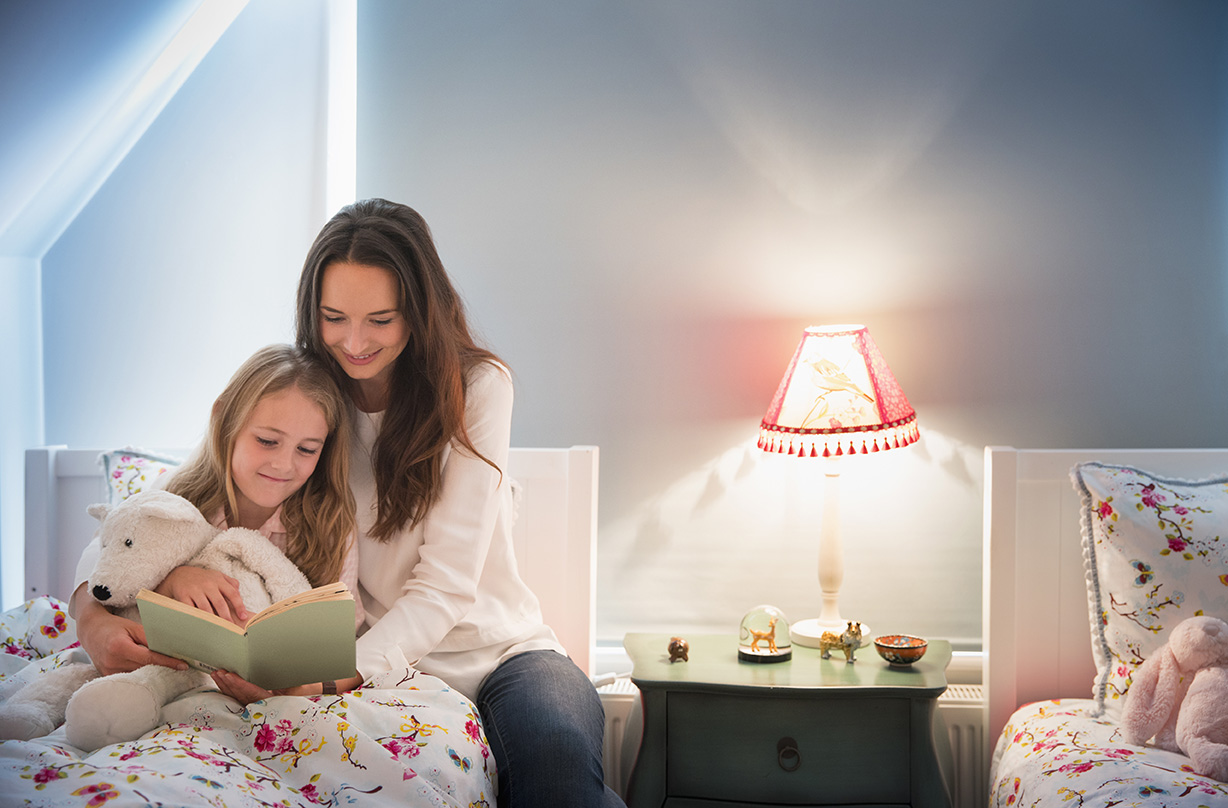
At the weekend they might want to stay up a bit later and it's good to allow this every now and then, but remember to keep them in their routine during the week, especially in term times.
As good as it is to reward them with a later bedtime sometimes, make sure that you set clear limits and only give them an extra half-an-hour at the most - the last thing you want is them slipping out of a bedtime routine that works.
Try a sticker chart for little ones
You praise your kids for good behaviour in the day, right? So if they sleep well, they should be praised too. For younger children make a sticker reward chart and set goals for them to reach. For example, if they sleep the whole night through in their bed then they get a sticker and if they get a whole week's worth of stickers then they'll be rewarded with a treat. Giving them achievable targets and incentives like that will encourage them to try and sleep well.
Remove computers, phones and TVs from their room

Try and make their room a place that's about relaxing and going to sleep rather than getting wound up at a computer game or watching the TV. As hard as it is with all the pressure for them to have up-to-date toys, it's best to try and avoid this in their bedrooms. Without the distraction of a TV or Nintendo DS they are much more likely to have a sound night's sleep.
Tip: If your kids have phones make sure they're switching them off at night time too.
Cut down on fizzy drinks during the day
Studies have shown that fizzy drinks can have an affect on kids' sleep. Not only do the drinks disrupt their sleep at night time, but they also leave them feeling sluggish and tired in the day. So, try and cut back on the fizz you give your kids, we bet you'll notice the difference!
Tips for dealing with common sleep problems
My child wakes up thirsty in the night

If your child is still in nappies then leave a drink in a non-spillable cup by the side of their bed. It's best to just give them water through the night as they'll have brushed their teeth before they go to bed so they shouldn't have squash.
If your child is a bit older and out of nappies, then make sure they drink enough through the day and go to the toilet just before bed. If they wake up saying they're thirsty give them a drink of water, but don't let them guzzle it, or they might end up having an accident.
My child wakes up worrying
It's not unusual for primary school children to wake up worrying, after all they have lots of things on their mind, from friendship to their school work. If they wake up like this in the night, sit them down and explain that it's alright and they have nothing to stress about. Reassure them that you'll talk through all their concerns with them in the morning.
Tips:
- Be interested in everything they do. Kids will often hold back if something is bothering them, so make sure you talk through all the different things they do at school and then if they act differently when they are talking about something, like an upcoming test, you'll be more likely to pick up on it
- Offer to help - for example, if it's a maths test they're worried about, then give them some extra help with their homework
- Help them come to a solution. Support them in coming up with a way to solve their worries, rather than simply solving them for them
- Be a good role model! If they hear you fretting about things, then they are likely to pick up on that attitude, so try to stay calm around them and show them the best way to cope with stress
My child won't fall asleep alone
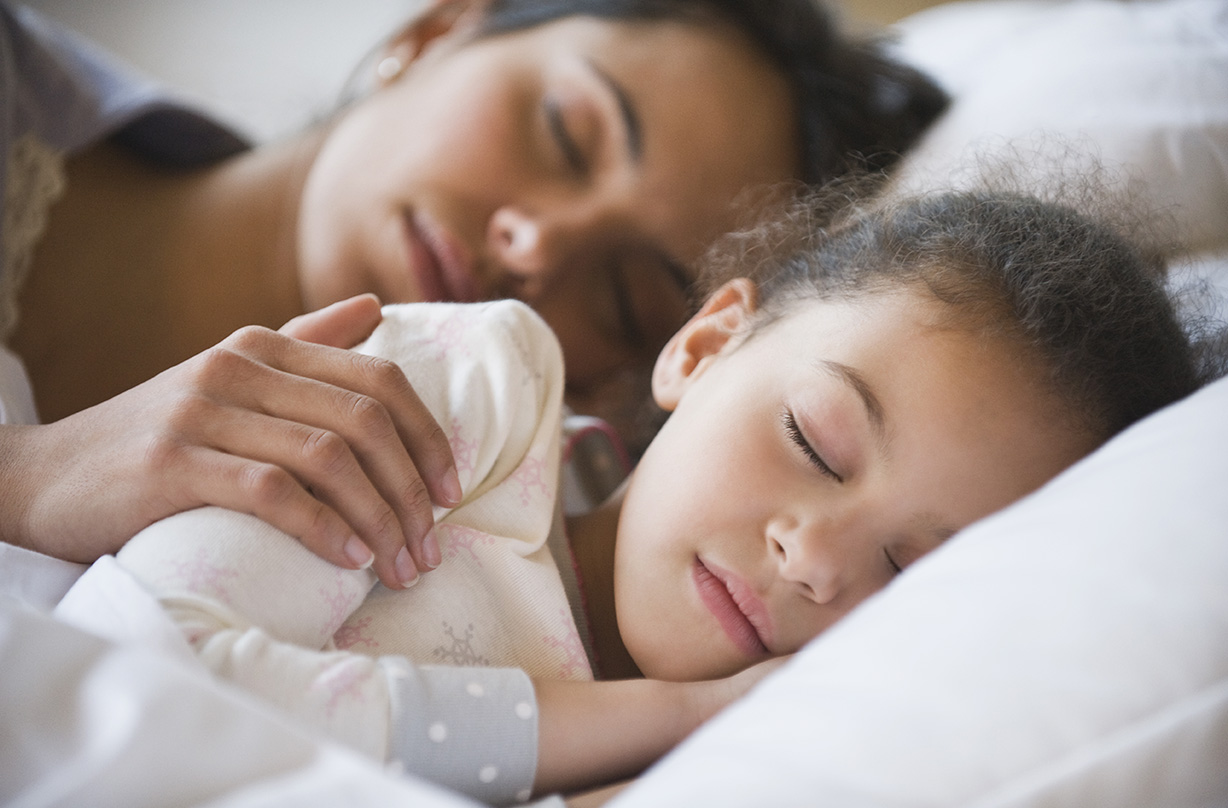
If getting your child to sleep on their own is proving to be the biggest problem for you, then don't panic. There are lots of ways you can make their room seem like a nice place to be on their own and soon they'll be happy falling asleep by themselves. It's unlikely that it'll be an overnight process, especially if you have been staying with your child until they fall asleep.
But, try things like music or audio books as they will take their mind off the fact they are being left alone. Also try putting softly glowing toys on the ceiling in their room to keep them entertained. And, if you have been sitting with them until they fall asleep, gradually decrease the amount of time you spend with them.
How do I know if my child has a sleep disorder?
Detecting a sleep disorder in a child can be quite challenging for a parent, says Dr Tim Ubhi, consultant paediatrician and founder of The Children’s e-Hospital, "but a child with an obstructive air way problem may present with snoring or increased work of breathing.
"This together with other types of sleep disturbances (including sleep walking and similar conditions which we call parasomnias) result in a disturbed sleep cycle. This can result in a child who is tired through the day, irritable and who has poor concentration."
The most common types of child sleep disorders include:
- Snoring
- Obstructive sleep apnoea
- Bed wetting
- Poor sleep hygiene
- Parasomnias which include sleep walking, night terrors and nightmares
But luckily, unlike some other more serious child sleep disorders, there are indicators and ways to prevent this from affecting your child in the long term.
What are the warning signs?

While these could be the indicators of something else, Dr Ubhi says, "A poor sleep pattern will result in a child who is tired during the daytime, lacks concentration and who may be unusually irritable."
What can you do about it?
As with any serious worries you have about your child, our medical expert suggests that parents discuss concerns with their health visitor or GP, who can then arrange a referral to a paediatric specialist.
As consultant paediatrician, Dr Tim Ubhi tells GoodtoKnow, "There are strategies that can be employed for conditions such as sleep walking but for conditions such as obstructive sleep apnoea or snoring we usually need to monitor the child’s oxygen levels overnight to ensure that they are not getting significant airway obstruction.
"This can be corrected if it is picked up and usually requires input from an ENT doctor. A simple measure that all parents can employ is to introduce good sleep hygiene for all their children. Remove any stressors from their environment and ensure that they are free from electronic devices for an hour or two before bedtime."
Although troubles with children's sleep can be worrying, it's important to remember that a child might be struggling to sleep because of external factors such as too much light in their bedroom, or too much sugar before bed. Panicking about their sleeping habits will only stress them out further, so it's best to stay calm.
As long as you think your child is getting enough sleep and they aren't over-tired during the day, then you don't need to worry - it'll probably all fall into place on its own.

Grace Walsh is a health and wellbeing writer, working across the subjects of family, relationships, and LGBT topics, as well as sleep and mental health. A digital journalist with over six years experience as a writer and editor for UK publications, Grace is currently Health Editor for womanandhome.com and has also worked with Cosmopolitan, Red, The i Paper, GoodtoKnow, and more. After graduating from the University of Warwick, she started her career writing about the complexities of sex and relationships, before combining personal hobbies with professional and writing about fitness.